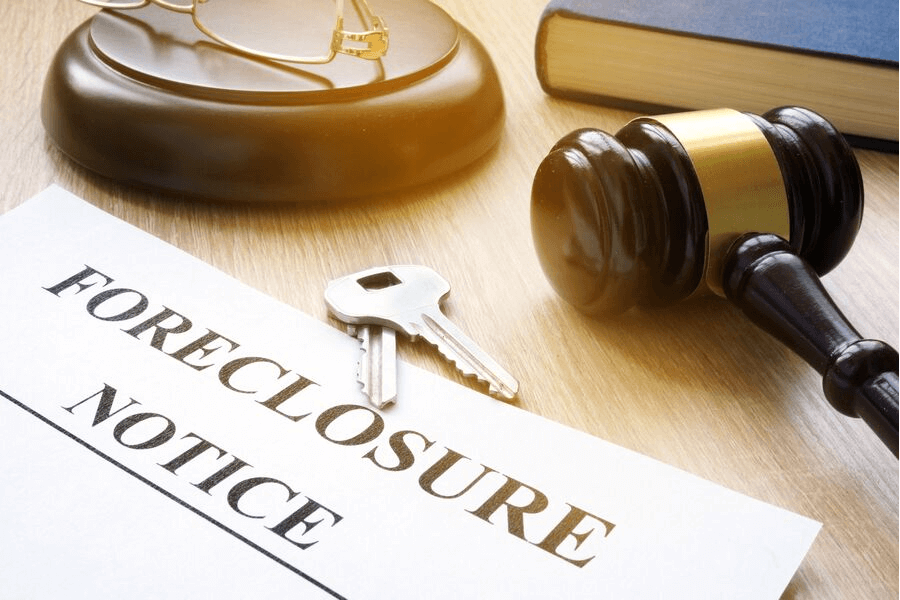
We buy houses in Ohio. We are homebuyers in Ohio, and we offer cash for houses in Ohio. Understanding the foreclosure process in Ohio is an important part of navigating your own home foreclosure.
Understanding the Foreclosure Process in Ohio
Before we dive in…
What Is Foreclosure in OH Anyway?
Foreclosure is the formal legal procedure that lenders use to reclaim a property used as collateral for a loan, typically triggered when the borrower ceases making payments as agreed. While facing foreclosure can undoubtedly be a challenging and distressing experience, it’s crucial to recognize that it is not an insurmountable or irreversible situation.
Understanding the intricacies of the foreclosure process in Ohio equips you with valuable insights, empowering you to effectively manage the situation and emerge from it in the best possible manner. By having a comprehensive grasp of how foreclosure operates in the state of Ohio, you can make informed decisions and take the necessary steps to navigate this challenging process successfully.
The Basic Stages of a Foreclosure in Ohio
The foreclosure process consists of several critical stages, and it’s important to note that these stages may vary across different states in the United States. States generally utilize one of two primary methods for foreclosure: the judicial sale or the power of sale.
To gain a comprehensive understanding of the foreclosure process in your specific locality, we encourage you to reach out to us via phone at (614) 401-3651 or through our contact page. We are well-versed in the local foreclosure procedures in Ohio and can provide you with detailed guidance.
In either foreclosure scenario, it’s essential to recognize that the legal proceedings typically do not progress to court until an extended period of 3 to 6 months has transpired, marked by missed mortgage payments. Throughout this timeframe, it’s customary (though not always the case) for the lender to issue multiple notices signaling that the borrower is in arrears, signifying that payments are overdue or behind schedule.
Under Judicial Foreclosure in Ohio
- Your mortgage lender must file suit in the court system.
- You’ll get a letter from the court demanding payment.
- Assuming the loan is valid, you’ll have 30 days to bring payment to court to avoid foreclosure (and sometimes, that can be extended).
- If you don’t pay during the payment period, a judgment will be entered and the lender can request the sale of your property – usually through an auction.
- Once the property is sold, the sheriff serves an eviction notice and forces you to immediately vacate the property.
Under Power of Sale (or Non-Judicial Foreclosure) in Ohio
- The mortgage lender serves you with papers demanding payment, and the courts are not required – although the process may be subject to judicial review.
- After the established waiting period has elapsed, a deed of trust is drawn up and control of your property is transferred to a trustee.
- The trustee can then sell your property for the lender at a public auction (notice must be given).
Anyone who has an interest in the property must be notified during either type of foreclosure. For example, any contractors or banks with liens against a foreclosed property are entitled to collect from the proceedings of an auction.
What Happens After a Foreclosure Auction in Ohio?
Once the foreclosure process is finalized, the outstanding loan balance is settled using the proceeds obtained from the sale of the property. In cases where the property’s sale at auction does not yield sufficient funds to cover the full loan amount, there is the possibility of a deficiency judgment being imposed upon the borrower. A deficiency judgment is a legal measure through which the bank obtains a judgment against the borrower, stipulating the remaining funds owed to the bank on the loan after the completion of the foreclosure sale.
It’s worth noting that the regulations governing deficiency judgments vary from one state to another. Some states cap the amount owed in a deficiency judgment at the fair market value of the property at the time of sale, while others permit the borrower to be held liable for the entire loan amount, even if it exceeds the property’s market value.
Here’s a great resource that lists the state-by-state deficiency judgment laws, since every state is different.
Sell My House in Ohio
Generally, it’s best to avoid a foreclosure auction. Instead, call up the bank or work with a reputable real estate firm like us at Homesmith to help you negotiate discounts off the amount owed to avoid having to carry out a foreclosure and still stay at the property.
Experienced investors can help you by negotiating directly with banks to lower the amount you owe in a sale – or even eliminate it, even if your home is worth less than you owe.
If you think you need to sell your house in Ohio, call us. We are your local Ohio home buyers and we can help you. We purchase houses in Ohio like yours from people who need to sell fast.
